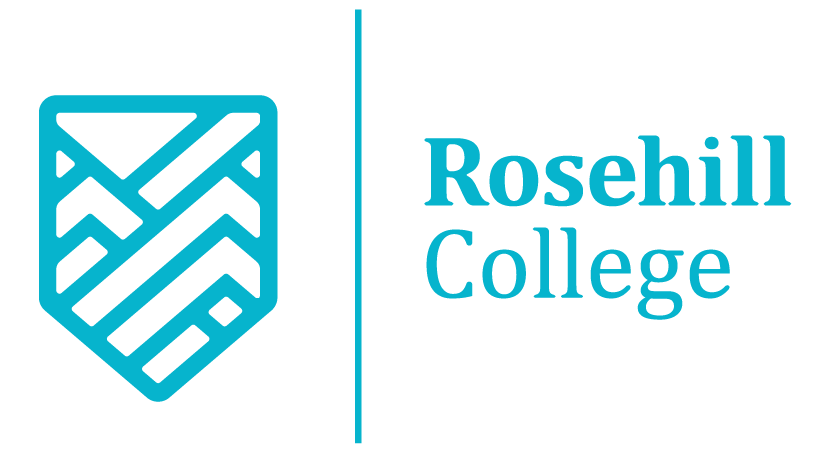CHC33021
Certificate III in Individual Support (Ageing and Disability)
The CHC33021 Certificate III in Individual Support (Ageing and Disability) at Rosehill College equips students with essential skills to provide person-centered care in community, home, or residential settings.

Course Overview
The CHC33021 Certificate III in Individual Support (Ageing and Disability) at Rosehill College equips students with the essential skills and knowledge required to provide person-centered care in community, home, or residential settings. This qualification is ideal for individuals who wish to work under supervision as part of a multidisciplinary team, supporting people who may require assistance due to ageing, disability, or other needs.
Students will learn to deliver tailored care by following individualized plans, ensuring the wellbeing and safety of their clients. The course covers a range of important areas, including working with diverse populations, infection prevention and control, supporting independence, and understanding the specific needs of people living with dementia.
Key Features
- Comprehensive Curriculum: Includes 9 core units and 6 elective units, focusing on both theoretical knowledge and practical skills.
- Practical Work Placement: A minimum of 120 hours of work placement is required, allowing students to gain hands-on experience in a real-world care setting.
- Focus on Compliance and Ethics: Emphasizes the importance of adhering to legal and ethical standards in the care industry.
Career Outcomes
Graduates of this course are well-prepared for roles such as:
- Aged Care Worker
- Disability Support Worker
- Personal Care Assistant
Pathways
Upon completion, students may choose to further their education with qualifications such as the CHC43121 Certificate IV in Disability Support or the CHC43021 Certificate IV in Ageing Support.
This course is perfect for those seeking a meaningful career in the care industry, where they can make a positive impact on the lives of others.
Course Sector
- Sector: Vocational Education and Training (VET)
- CRICOS Course Code: 116448D
- Course Level: Certificate III
- Course Language: English
- Duration: 52 weeks
Are you a Domestic student or International student?
Entry Requirements
- Age: Applicants must be at least 18 years of age.
- Course Entry Interview: Participation in a course entry interview is required to determine suitability for the course and assess individual student needs.
- English Language Proficiency:
- IELTS: Applicants must have an overall score of 6.0 with no band less than 5.5.
- Alternative Evidence of English Competence:
- Documented evidence of being educated for 5 years in an English-speaking country; or
- Successful completion of an English Placement Test at IELTS level 6.0.
- Other Accepted English Language Tests:
- PTE: Minimum score of 58.
- TOEFL (internet-based): Minimum score of 78.
- Cambridge English: Advanced: Minimum score of 176.
- Equivalency Confirmation: Students must provide test results to confirm they are equivalent to an IELTS score of 6.0.
These requirements ensure that international students possess the necessary English proficiency to successfully participate in the course and understand the curriculum content.
- Student Visa Requirements: Must meet the requirements for the Student Visa (Subclass 500), including:
-
- Genuine Temporary Entrant (GTE) Requirement: Demonstrate that you are a genuine student intending to stay in Australia temporarily for study purposes.
- Financial Capacity: Show that you have sufficient funds to cover tuition fees, living expenses, and travel costs.
- Overseas Student Health Cover (OSHC): Maintain health insurance for the duration of your stay in Australia.
- Health Requirements: Meet health standards as specified by the Australian Government.
- Character Requirements: Provide evidence of good character, which may include police certificates.
Entry Requirements
To enroll in the CHC33021 Certificate III in Individual Support (Ageing and Disability) , applicants must meet the following criteria:
- Age: Be at least 18 years of age.
- Course Entry Interview: Participate in a course entry interview to determine suitability for the course and assess individual student needs.
- Language, Literacy, and Numeracy: Demonstrate sufficient language, literacy, and numeracy skills by completing a language, literacy, and numeracy assessment. Students must achieve ACSF Level 3 in reading, writing, numeracy, and oral communication.
Course Details
Core Units
- CHCCCS031: Provide individualised support
- CHCCCS038: Facilitate the empowerment of people receiving support
- CHCCCS040: Support independence and wellbeing
- CHCCCS041: Recognise healthy body systems
- CHCCOM005: Communicate and work in health or community services
- CHCDIV001: Work with diverse people
- CHCLEG001: Work legally and ethically
- HLTINF006: Apply basic principles and practices of infection prevention and control
- HLTWHS002: Follow safe work practices for direct client care
Elective Units
Group A Electives (Ageing)
- CHCAGE011: Provide support to people living with dementia
- CHCAGE013: Work effectively in aged care
- CHCPAL003: Deliver care services using a palliative approach

Group B Electives (Disability)
- CHCDIS011: Contribute to ongoing skills development using a strengths-based approach
- CHCDIS012: Support community participation and social inclusion
- CHCDIS020: Work effectively in disability support
Assessment Methods
Knowledge Questions:
Assess students’ understanding of theoretical concepts through written questions that cover key topics from the course units.Portfolios:
Students compile evidence of their practical skills and experiences in a portfolio, often drawing on their work placement activities.Role Plays and Simulations:
Evaluate students’ ability to apply knowledge in realistic scenarios through role-playing activities that mimic real-world situations in care settings.Case Studies:
Analyze specific scenarios to assess students’ problem-solving abilities and their application of theoretical knowledge to practical situations.Practical Demonstrations:
Students perform specific tasks in a simulated or real-world environment to demonstrate their competency in essential skills.Workplace Logbook:
Document the completion of required work placement hours and the practical skills demonstrated during those placements, signed off by workplace supervisors.
These assessment methods ensure a comprehensive evaluation of both theoretical knowledge and practical skills, preparing students for real-world roles in individual support.
Delivery Mode
Face-to-Face Learning:
Engage in instructor-led sessions at Rosehill College, where students participate in interactive classroom activities, discussions, and practical demonstrations.Structured Self-Study:
Students are provided with self-study guides and materials to complete independent learning tasks, which support and reinforce the concepts taught during face-to-face sessions.Workplace Training:
Gain hands-on experience through a minimum of 120 hours of work placement in a community, home, or residential care setting, where students apply their knowledge and skills in a real-world environment.
This blended delivery approach ensures that students receive a well-rounded education, combining theoretical learning with practical experience to prepare them for careers in individual support.
Work Component
Students enrolled in the CHC33021 Certificate III in Individual Support (Ageing and Disability) are required to complete a minimum of 120 hours of work placement in a regulated care setting. This work component is designed to:
- Apply Theoretical Knowledge: Students will have the opportunity to implement the concepts and skills learned in the classroom in real-world care settings.
- Develop Practical Skills: Gain hands-on experience in providing person-centered care, supporting individuals with ageing and disability needs, and working within a multidisciplinary team.
- Meet Industry Standards: Work placements are conducted in environments that adhere to industry standards, ensuring students receive relevant and current practical experience.
- Supervised Training: Students are supervised by experienced professionals in the field, who guide and assess their performance throughout the placement.
Completion of the work component is essential for students to demonstrate their competency in the practical aspects of individual support and is a mandatory requirement for achieving the qualification.
Pathways
Employment Pathways
Graduates of the CHC33021 Certificate III in Individual Support (Ageing and Disability) are well-prepared for various roles within the care sector, including:
- Aged Care Worker
- Disability Support Worker
- Personal Care Assistant
- Community Care Worker
These roles involve providing person-centered care to individuals in residential, community, and home care settings, focusing on supporting those with ageing or disability-related needs.
Further Education Pathways
Upon successful completion of the course, students may choose to further their education and enhance their career prospects by pursuing higher qualifications, such as:
- CHC43121 Certificate IV in Disability Support
- CHC43021 Certificate IV in Ageing Support
- CHC52021 Diploma of Community Services
These further education options can lead to advanced roles within the care industry, such as team leader, care coordinator, or management positions in community and residential care settings.
This course provides a solid foundation for students aiming to build a long-term career in the care industry, with clear pathways for career progression and further education.
Student Growth Stories
Intake Dates
2025
- 13 January 2025
- 24 February 2025
- 14 April 2025
- 26 May 2025
- 14 July 2025
- 25 August 2025
- 13 October 2025
- 24 November 2025
2026
- 12 January 2026
- 23 February 2026
- 13 April 2026
- 25 May 2026
- 13 July 2026
- 24 August 2026
- 12 October 2026
- 23 November 2026
2027
- 11 January 2027
- 22 February 2027
- 12 April 2027
- 24 May 2027
- 12 July 2027
- 23 August 2027
- 11 October 2027
- 22 November 2027
Apply in 3 easy steps
Prepare
Read through the admissions criteria and ensure you meet the entry requirements.
Apply
Apply online or contact us to assist with your application
Offer
We’ll contact you to confirm the details and help you through the rest of the process.


